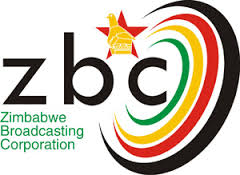By Ciaran Ryan
The US Embassy in Pretoria has issued a diplomatic note to SA claiming the Johannesburg High Court lacks jurisdiction over the US in the case brought a year ago by the Zimbabwe Anti-Sanctions Movement (ZASM) seeking to have sanctions against Zimbabwe declared unlawful, unconstitutional and invalid.
The case was filed in March 2022, citing as respondents the US president, president of the US senate, speaker of the US House of Representatives, secretary of the US Treasury, head of the US Office of Foreign Assets Control and chair of the US Committee of Foreign Relations.
Also cited as respondents are major US banks such as Bank of America, Goldman Sachs, Morgan Stanley, Wells Fargo, and SA banks FirstRand, Standard Bank and Absa.
SA’s Department of International Relations and Cooperation (Dirco) used its diplomatic channels to communicate the details of the case to its counterpart in the US.
‘Absolute immunity’
“To the extent that the court purports to summon the President of the United States of America, the US Embassy wishes to remind the Department [Dirco] that pursuant to customary international law, the president of the United States of America is the head of state and head of government for the United States of America, and that therefore he enjoys absolute immunity from criminal and civil jurisdiction of the Republic of South Africa,” says the diplomatic note from the US Embassy, dated 6 March 2023.
The note says the US Office of Foreign Assets Control has no legal personality in SA separate from the US government and has therefore not been properly named as a defendant in the case.
“Consistent with customary international law and the law of South Africa, the Embassy notes that the United States of America intends, to the extent necessary, to claim immunity in this matter because the Court does not have the jurisdiction to adjudicate the issues raised,” says the diplomatic note.
Jurisdiction
This runs counter to the ZASM’s argument in its court filings that the Joburg High Court has the necessary jurisdiction because the US and SA banks cited as respondents have offices in Johannesburg and are under obligation to apply US sanctions against Zimbabwe.
“The United States claims that the South African High Court does not have the jurisdiction to determine the legality of the enforcement of United States law within South Africa, which is a colonial argument,” says Advocate Simba Chitando, who is representing ZASM.
“ZASM believes that South African Courts have jurisdiction to decide on the legality of all laws applied within South Africa,” he adds.
‘Foreign policy’
Sanctions are a powerful foreign policy tool used by the US against more than 20 countries, notably Russia, Zimbabwe, Iran and Venezuela.
Countries are targeted by the US for narcotics trafficking, terrorism, cyber operations, foreign interference in US elections, and human rights violations.
US sanctions were first imposed on Zimbabwe in 2001 under the Zimbabwe Democracy and Recovery Act (Zidera), with the purpose of restoring order in the country after state-sanctioned land invasions and human rights abuses.
Sanctions have been in place for 22 years and have denied Zimbabwe access to international capital markets as well as international balance of payments support, says the ZASM.
The sanctions have also denied Zimbabwe access to international development and donor assistance.
Fines and ‘the list’
Banks in SA and the US flouting these sanctions by offering financial services to Zimbabwean institutions and individuals targeted by Zidera run the risk of serious financial repercussions themselves.
The sanctions are administered by the US Office for Foreign Assets Control (OFAC), with fines of $250 000 for violations, and possible criminal conviction where the penalty could be $1 million or jail of up to 20 years.
International investors who deal in US dollars are prohibited from dealing with any individual or entity cited by OFAC.
As a result, many investors and SA banks are afraid of doing business in Zimbabwe for fear that they would fall foul of OFAC’s sanctions, according to ZASM’s court papers.
Several Zimbabwean individuals and companies with money owing to them in SA have been denied access to their assets and prevented from transacting in SA because their names appear on the OFAC list.
A report by Zimbabwe’s Ministry of Foreign Affairs and International Trade says US sanctions suffocated Zimbabwe’s ability to meet its international financial obligations, while denying the country critical balance of payments support.
Zimbabwean importers are forced to pay cash upfront, loan inflows to Zimbabwean companies have dropped, and the country’s agricultural output has fallen due to an inability to import farming equipment.
Rutendo Matinyarare, director of ZASM, argues in his court filings that US sanctions are inconsistent with the terms of the African Free Trade Agreement, to which SA is a signatory, and the Bilateral Investment Promotion and Protection Agreement (Bippa) between SA and Zimbabwe.
There is ample debate in academic circles about the morality of sanctions as a foreign policy tool, and whether they work.
“[The US] uses sanctions most often and with greater economic consequences than any other country. Moreover, it is usually the instigator and enforcer of the application of sanctions by other countries either through bilateral dominance or through its ability to utilise the United Nations Security Council,” says author Tim Beal in Sanctions as Instrument of Coercion: Characteristics, Limitations, and Consequences.
“ZASM joins the Southern African Development Community, African Union and the United Nations in calling upon the United States government, and several others, to remove sanctions on Zimbabwe,” says Chitando.




